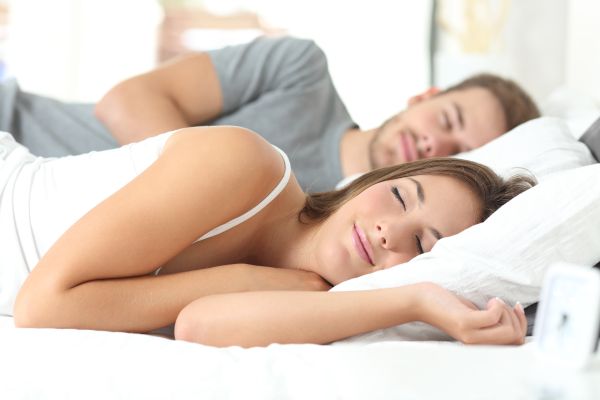How Sleep Apnea Affects You and How Sleep Medicine Helps

Sleep medicine is a discipline that focuses on the diagnosis and treatment of sleep disorders. Sleep apnea is a common sleep disorder that occurs when an individual’s breathing is temporarily interrupted while sleeping. Individuals with untreated sleep apnea often stop breathing several times during their sleep. This means that the brain as well the rest of the body may not get enough oxygen. Read on to learn about how sleep apnea might affect you.
Sleep medicine and sleep apnea
Obstructive sleep apnea, or OSA, is considered to be the most common type of sleep apnea. It occurs when the muscles in the back of a person’s throat are not able to keep the airway open. This is usually despite efforts to breathe. Another form of sleep apnea, which is less common, is central sleep apnea. This occurs when the brain does not control breathing properly during sleep. Here are some of the signs and symptoms of sleep apnea.
Signs and symptoms
People with sleep apnea are usually sleep-deprived. As a result, they may suffer from sleeplessness and a range of other symptoms. These include difficulty concentrating, irritability, depression and learning and memory difficulties. It can even contribute to sexual dysfunction. People may also fall asleep while at work, driving or on the phone. People with sleep apnea have an increased risk of workplace and car accidents.
Adolescents and children with sleep apnea may perform poorly in school. They may also have behavior problems. If sleep apnea is left untreated, its symptoms may include excessive sleepiness during the day, disturbed sleep, depression or a stroke. Other complications may include high blood pressure, congestive heart failure, a heart attack or cardiac arrhythmia.
Treatment
A sleep medicine physician can diagnose OSA using a sleep study or a home sleep apnea test. There are different treatment options available for sleep apnea. In many cases, a health care provider may recommend the use of a continuous positive airway pressure device (CPAP). CPAP is a mask that fits over a patient’s nose and/or mouth. It gently blows air into the airway, which helps keep it open while a person is sleeping.
An oral appliance can also help people with moderate or mild OSA. Oral appliances look just like sports mouthguards. These appliances can help to maintain an unobstructed and open airway. This is achieved by stabilizing or repositioning the lower jaw, tongue, uvula or soft palate. Some of them can treat both sleep apnea and snoring and others are designed particularly for snoring.
Takeaway
Sleep apnea is a serious medical condition that can lead to many complications including daytime fatigue. It can have a negative impact on a person’s life. It is always a good decision to seek treatment for the condition early. Some effective treatment options that can help improve its signs and symptoms include using CPAP and oral appliance therapy. Oral appliances should always be fitted by qualified dentists who are trained in sleep medicine. If you want to learn more about the treatment options for sleep apnea, talk to your doctor today.
Request an appointment here: https://artisandentalbellevue.com or call Artisan Dental at (425) 454-2005 for an appointment in our Bellevue office.
Check out what others are saying about our services on Google: Read our Google reviews.
Related Posts
Everyone learns oral hygiene basics when they are young, but some details get lost over time. For example, many adults are confused about what type of toothbrush to use. This simple tool comes in many different forms, including a variety of sizes and a range of bristle textures. You may wonder why there are so…
The oral hygiene basics recommended by dentists are essential for healthy teeth and gums. They include brushing and flossing, which should be done twice and once a day, respectively. However, not everyone adheres to this guidance. Is it that bad if you skip these practices.As it turns out, failing to observe oral hygiene basics can…
Brushing and flossing are essential oral hygiene basics that help prevent tooth decay and gum disease. While many people pay careful attention to their teeth and gums, the tongue is often neglected. However, this large surface of the mouth should also be cleaned on a daily basis. Doing so can help many people enjoy better…
Brushing and flossing teeth are critical oral hygiene basics that everyone should include in their care routines. Many people already know the proper procedures and benefits of brushing their teeth regularly, but flossing sometimes gets left out. In fact, according to U.S. News, only about 30% of the population in the United States flosses daily.…









